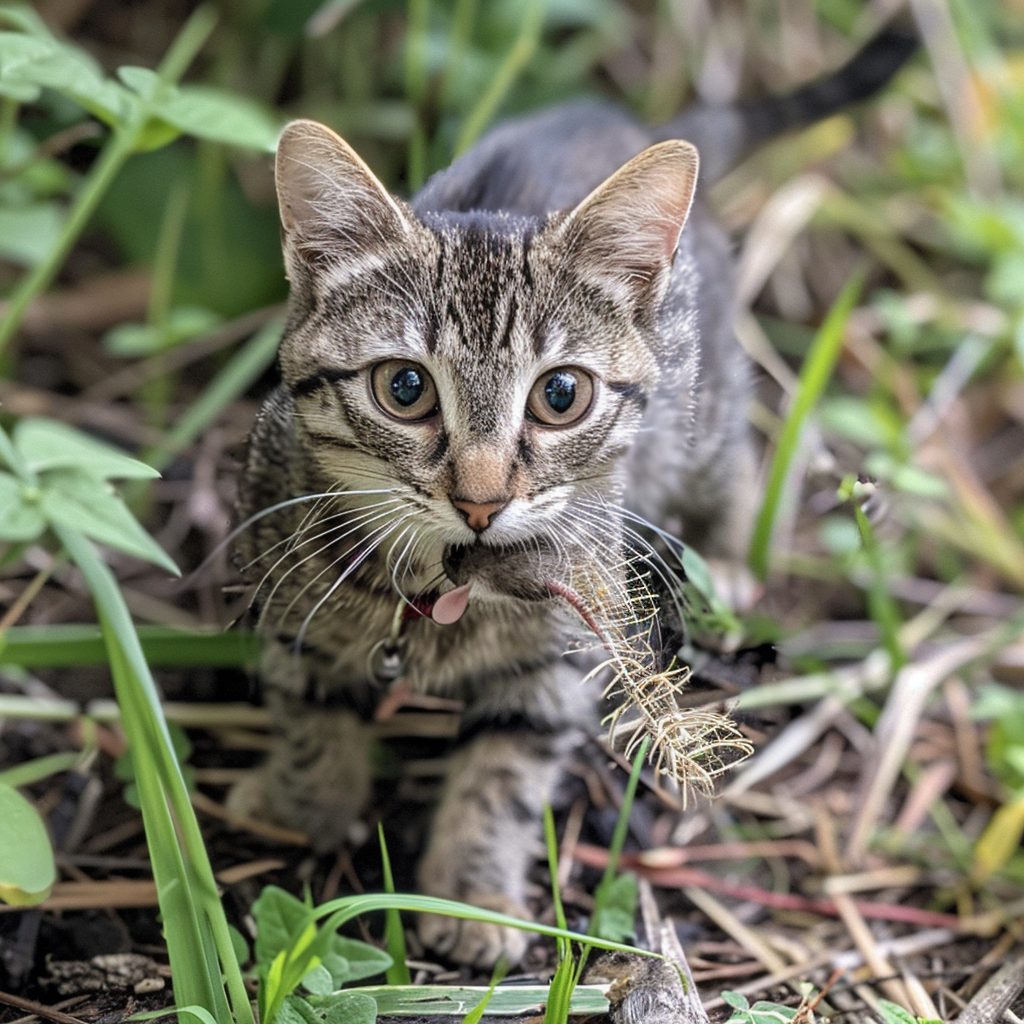
Cats have long been intriguing creatures, captivating humans with their enigmatic behaviors. One such behavior that often puzzles and even disturbs cat owners is the habit of bringing dead mice, birds, or other small animals as “gifts” to their human companions. While this gesture may seem perplexing or even unpleasant to some, it’s essential to delve into the evolutionary, biological, and social reasons behind this behavior to gain a deeper understanding of our feline friends.
Instinctual Hunting Behavior
At the core of this behavior lies a cat’s innate hunting instinct. Cats are natural-born predators, finely tuned through centuries of evolution to stalk, chase, and capture prey. Even in domestic settings where food is readily available, cats retain these hunting instincts. When they bring a dead mouse or bird to their owner, it’s essentially a display of their hunting prowess. From the cat’s perspective, they’re sharing their success with their human family, akin to a trophy hunter showcasing their catch.
Teaching and Bonding
In the wild, mother cats teach their kittens how to hunt by bringing them injured or dead prey. By doing so, they impart crucial hunting skills necessary for survival. Similarly, when a domestic cat brings a dead animal to its owner, it may be attempting to teach its human companion how to hunt or provide sustenance, albeit in a misguided manner. This behavior underscores the bond between the cat and its owner, with the cat viewing the owner as part of its family or “clan.”
Seeking Approval and Attention
Cats are known for their independence, but they also crave attention and approval from their owners. Bringing a dead mouse or bird can be a cat’s way of seeking validation or recognition from its human companion. In the cat’s mind, it may believe that it’s offering a valuable gift or performing a service to its owner, hoping to receive praise or affection in return.
Communication and Social Behavior
Cats are highly communicative animals, albeit in subtle ways. Bringing a dead animal can also serve as a form of communication. In the wild, cats may bring prey to share with other members of their group, reinforcing social bonds and hierarchies within the feline community. Similarly, when a domestic cat brings a dead mouse to its owner, it could be an attempt to communicate its role within the household or establish itself as a provider.
Instinctive Food Storage
In some cases, cats may bring dead prey back home not necessarily as a gift but as a form of food storage. Cats are known to be opportunistic feeders, and they may bring back more prey than they can consume in one sitting, intending to stash it away for later consumption. From the cat’s perspective, the home is a safe and secure environment to store food, even if it may seem unsightly or unpleasant to their human companions.
While the act of a cat bringing a dead mouse or bird to its owner may appear baffling or unsettling to us, it’s essential to recognize that this behavior is deeply ingrained in their evolutionary, biological, and social makeup. Understanding the reasons behind this behavior can help foster a stronger bond between cats and their owners and deepen our appreciation for the complex and fascinating nature of our feline companions. Rather than being repelled by their offerings, we can view them as gestures of affection, communication, and the expression of their natural instincts.





